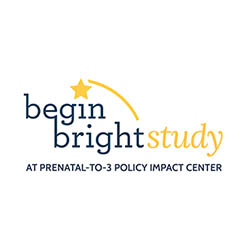Research shows that paid family leave is one of the most effective policies that a state can implement to lay a strong foundation for the rest of a baby’s life, avoiding life-long developmental, educational, social, and health challenges. The Prenatal-to-3 Policy Impact Center at The University of Texas at Austin and ZERO TO THREE hosted a joint webinar exploring how policymakers and advocates can use both the State of Babies Yearbook and the Prenatal-to-3 State Policy Roadmap to inform your state’s efforts to adopt an effective and equitable paid leave policy. Leaders also shared their efforts to adopt and expand paid family leave to enhance equity and wellbeing in their state. Recording and materials are provided below.
The time after the birth or adoption of a baby is one of the most important periods of development for babies and families, and early relationships can nurture early brain connections.
Rigorous research studies show that access to paid leave:
- boosts maternal labor force attachment
- increases a family’s economic security
- improves maternal mental health
- fosters better parent-child relationships
- supports child health and development
Related Resources on Paid Family Leave
- Flyer: The Evidence of Impact for Paid Family Leave
- Clearinghouse Evidence Review: Paid Family Leave
- Prenatal-to-3 State Policy Roadmap: Paid Family Leave section (PDF)
- See where your state stands on Paid Family Leave: State Roadmaps (PDF) and state data interactives
Speakers
Hosts
- Myra Jones-Taylor, Ph.D., Chief Policy Officer, ZERO TO THREE
- Cynthia Osborne, Ph.D., Director, Prenatal-to-3 Policy Impact Center; Associate Dean, LBJ School of Public Affairs at The University of Texas at Austin
Guest Speakers
- Leanne Barrett, Senior Policy Analyst, Rhode Island KIDS COUNT
- Alison May, Policy Associate, National Conference of State Legislatures
- Andrea Paluso, Executive Director, Family Forward Oregon
Watch the Recording
Webinar Materials
- Combined slide deck for all speakers (PDF)
- Prenatal-to-3 Policy Impact Center
- ZERO TO THREE
- Rhode Island Kids Count
- Family Forward
- National Conference of State Legislatures
Please contact us if you have questions about the webinar.



